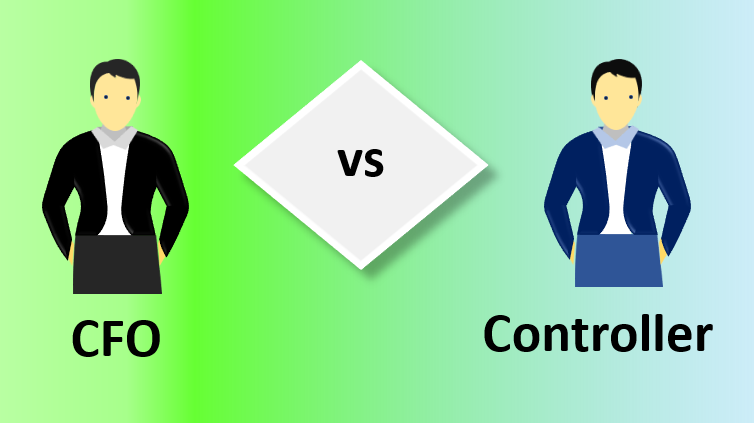In the world of corporate finance, two key positions stand out for their impact on a company’s financial health: a Finance Controller and a Finance Director. Both roles are crucial, yet their responsibilities differ in various ways. Understanding the distinctions between these positions is essential for anyone looking to work in finance or manage a financial team. This article will explore their roles, responsibilities, and how they contribute to a company’s success.
What Does a Finance Controller Do?

A Finance Controller oversees the financial accounting and reporting within an organization. Their role includes managing day-to-day financial transactions, ensuring accuracy, and preparing financial statements. They handle budgets, tax compliance, and audits, making sure everything is up to legal and regulatory standards. Controllers are often considered the gatekeepers of financial data, ensuring that all numbers add up and are reported correctly. Their primary goal is to keep the financial system running smoothly, without errors or discrepancies.
Key Responsibilities:
- Manage accounting and financial reporting
- Ensure compliance with tax laws and regulations
- Oversee audits and budget processes
- Maintain accurate financial records and reports
The Role of a Finance Director

The Finance Director focuses on strategic financial management and long-term planning. Unlike the Finance Controller, who handles the day-to-day operations, the Finance Director works on broader financial strategies to drive business growth. They analyze financial reports, forecast future financial performance, and advise senior management on how to best use resources. Their job is to look ahead and make sure the company is financially prepared for future challenges and opportunities.
Key Responsibilities:
- Strategic financial planning
- Financial forecasting and resource allocation
- Advising top management on financial strategies
- Ensuring the company’s long-term financial health
Key Differences Between a Finance Controller and a Finance Director

Although both positions deal with the financial side of a business, they serve different purposes. The Finance Controller is more concerned with accuracy, compliance, and daily financial operations. In contrast, the Finance Director takes a high-level approach, focusing on strategy and the future of the business.
Key Differences:
- Controllers handle financial operations; Directors manage strategy
- Controllers focus on compliance; Directors emphasize growth
- Controllers report on current financial health; Directors plan for future success
Read More: Understanding the Difference Between Business Law and Commercial Law
Education and Skills Required for a Finance Controller

Becoming a Finance Controller requires a strong background in accounting. Most Controllers have a degree in accounting or finance and often hold a Certified Public Accountant (CPA) designation. Attention to detail, analytical thinking, and leadership skills are essential. A good Finance Controller must be comfortable with numbers, regulations, and managing a team.
Required Skills:
- Accounting expertise
- Leadership and team management
- Regulatory knowledge
- Strong analytical skills
Education and Skills Required for a Finance Director

Finance Directors typically have a broader educational background in finance, economics, or business administration. Many hold advanced degrees like an MBA, which helps them manage large financial operations and develop strategies. Strong communication skills are crucial since they must present financial strategies to senior management and stakeholders.
Required Skills:
- Financial strategy development
- Communication and leadership
- Risk management and financial forecasting
- Advanced financial analysis skills
How Both Roles Contribute to Business Success

Both a Finance Controller and a Finance Director play a crucial role in ensuring a company’s success. While the Controller ensures the financial processes are accurate and compliant, the Director sets the path for future growth. Their combined efforts allow companies to thrive financially, balancing current operations with future opportunities.
Contributions:
- Controllers keep financial records accurate and compliant
- Directors develop long-term financial strategies
- Both roles ensure the company is financially sound and well-managed
The Importance of Collaboration Between Both Roles

A Finance Controller and a Finance Director must work closely together to ensure that a company’s financial operations align with its strategic goals. Their collaboration ensures that daily financial management supports broader business objectives.
Key Areas of Collaboration:
- Budgeting and financial planning
- Audit and compliance management
- Aligning financial reporting with business strategy
Career Path and Growth Opportunities

Both roles offer strong career growth opportunities. A Finance Controller may advance to a Finance Director role with the right experience and strategic thinking skills. Similarly, Finance Directors can move into executive roles such as Chief Financial Officer (CFO) or even Chief Executive Officer (CEO), depending on their career trajectory and performance.
Career Growth:
- Controllers can move into strategic roles like Finance Director
- Finance Directors can rise to executive positions like CFO or CEO
- Both roles offer opportunities in various industries and sectors
Read More: Outsourced Finance Director: Why Your Business Needs One in 2024
Conclusion
In summary, the roles of a Finance Controller and a Finance Director are distinct yet complementary. The Controller focuses on maintaining accurate financial records and ensuring compliance, while the Director works on financial strategies and long-term planning. Together, they ensure the financial stability and growth of a company, making both positions critical in any organization.
FAQ
Q1: Can a Finance Controller become a Finance Director?
Yes, with experience and strategic thinking skills, many Finance Controllers can transition into Finance Director roles.
Q2: Is a Finance Director higher than a Finance Controller?
Typically, yes. The Finance Director focuses on higher-level strategic management, while the Controller handles day-to-day operations.
Q3: What qualifications are needed to become a Finance Director?
Most Finance Directors have an advanced degree in finance or business administration, along with extensive experience in financial management.
Q4: Do both roles require the same skills?
While there is overlap, Controllers need a strong focus on accounting and compliance, while Directors require skills in strategy, leadership, and financial forecasting.
